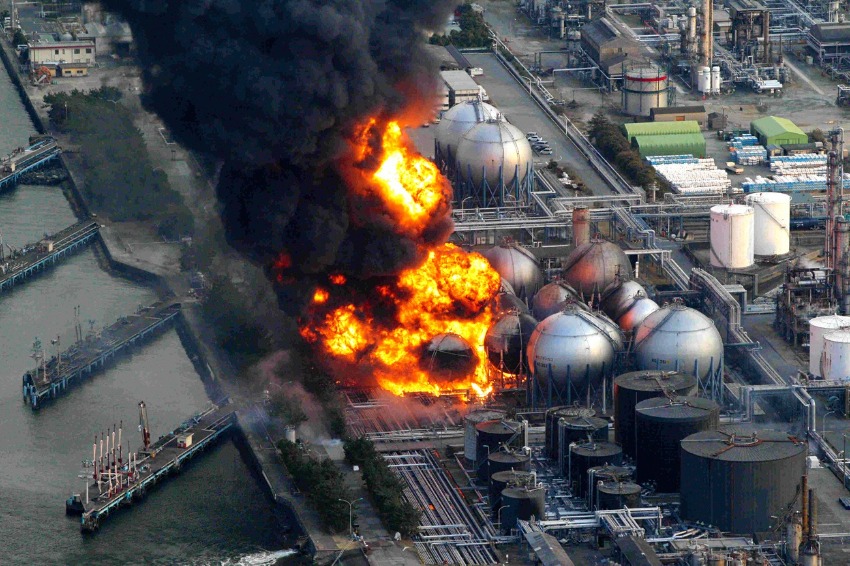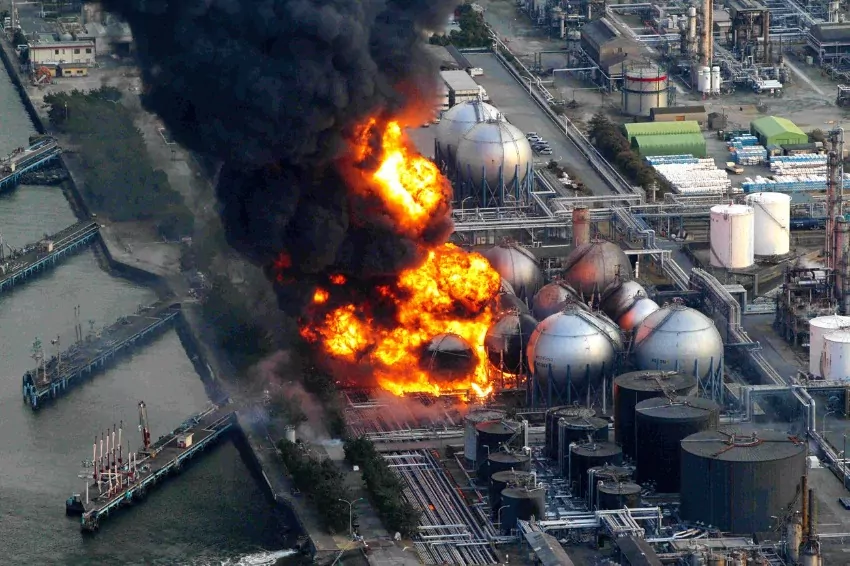

(c) Islands Business
It’s possible that one of the most unexpected locales is seeing a nuclear renaissance.
After a little more than a decade has passed since the Fukushima disaster, which occurred in the region of northern Japan known as Fukushima, which has become globally synonymous with the dangers of nuclear power, Tokyo appears to be ready to embrace atomic energy once more.
Not only is Prime Minister Fumio Kishida planning to advocate for the restart of operations at nuclear power facilities, such as Tokyo Electric Power Company’s Kashiwazaki-Kariwa, the largest nuclear power facility in the world, but he is also considering reversing a policy that has been in place for the past decade and considering whether or not to consider the construction of new nuclear power plants. Additionally, the nation will look into the possibility of increasing the lifespan of existing reactors beyond the current limit of sixty years.
It was only a matter of time: Following earlier concerns in this year, Japan is now facing another winter in which it is anticipated that demand for electricity would be right up against supply. The country is slowly coming to terms with the fact that it cannot combat Russian energy, climate change, and nuclear power all at the same time.
Nevertheless, the U-turn is eye-catching in its own right. Even as recently as one year ago, the foundational strategy of the energy ministry aimed for “cutting dependence on nuclear as much as possible.”
In the past, Kishida has shown enthusiasm for restarting already decommissioned units; but, the construction of new ones brings a totally new set of obstacles. For a prime leader whose approval ratings are already on the decline, Kishida will not have an easy time persuading the public to stop being afraid of nuclear power and start appreciating it once more.
Formerly, Japan was a steadfast supporter of nuclear power, despite the fact that it was initially unlikely. Japan saw nuclear power as the solution to its problem of being dependent on energy from other countries.
Within the span of barely twenty years, the nation’s principal source of electricity generation transitioned to nuclear power, which helped fuel the post-oil crisis stage of the country’s economic miracle. At the turn of the 2000, it was responsible for the generation of more than a third of the nation’s power.
The criticality disaster that occurred at the Tokaimura facility in 1999, which was a limited self-sustained nuclear chain reaction, and the earthquake that struck Kashiwazaki-Kariwa in 2007, which shook it beyond its design parameters, had already dampened enthusiasm for nuclear power. Then the tsunami hit, which was followed by the meltdown at Fukushima Dai-ichi.
The prime minister at the time, Naoto Kan, who leans to the left, issued an order to immediately shut down the Hamaoka nuclear reactor, which is located far away. During the largest demonstrations the country had witnessed in decades, tens of thousands of people marched against nuclear power in Tokyo. Protesters such as Masayoshi Son, founder of SoftBank Group Corporation, lined up to join the anti-nuclear movement.
After a period of just over one year, Japan’s nuclear power plants were all taken offline. The percentage of generation that came from nuclear power fell to zero, while the use of liquefied natural gas (LNG) and coal increased dramatically. In 2014, thermal power accounted for approximately 90 percent of all electricity generated. Only six of the nation’s 33 reactors that are still operational are now being used.
Kishida’s about-face can be explained by a confluence of factors, including public opinion and geopolitics. The natural gas venture known as Sakhalin-2, which is essential to Japan’s LNG supply, has seen its future cast into doubt as a result of Russia’s war in Ukraine.
As a consequence, there has been an increase in the cost of electricity, there is anxiety regarding the possibility of blackouts, and there is concern regarding climate change. For the first time since the Fukushima disaster, a majority of people questioned by the Nikkei daily said they supported restarting nuclear power plants earlier this year.
It’s possible that opposition is waning, but in recent times there hasn’t been much to resist. Up until this week, the party in power in Japan has shown very little inclination to do anything beyond restarting the country’s halted fleet.
Since before the Fukushima disaster, Japan has not constructed a new reactor. In theory, three reactors are currently under construction, and another six are in the planning stages; however, work appears to be stalled, and operators have not provided a timeline for when any of the reactors might come online.
This stands in stark contrast to not only the building frenzy of the past, but also the boom of building that has been taking place in other parts of Asia. In the next ten years, India intends to increase the number of nuclear reactors it now operates, and in the following fifteen years, Chinese officials intend to construct at least 150 nuclear reactors. In addition, South Korea plans to manufacture four more reactors by the year 2030.
It is unlikely that Japan will be able to keep up with such a frenetic pace, but the country will be adamant about avoiding making the same mistake as Germany. In that country, politicians are currently attempting to reverse course on their decision to phase out nuclear power in order to avoid an impending energy crisis this winter. Because it has no neighbors from which it can borrow energy, Japan’s options are severely restricted.
To power a new electricity generator in Japan and South Korea, nuclear power is frequently the most efficient and economical option available. Because of the unusually high local costs associated with wind and solar energy, atomic energy is currently the most cost-effective alternative that can be pursued. Furthermore, extending the operational life of existing nuclear plants, not to mention those that were temporarily shut down as a result of the Fukushima disaster, is even more cost-effective.
However, the difficulties are enormous. It is necessary to have support on both the national and local levels. There is a possibility that public opinion will be in favor of restarting reactors that have been through the rigorous approval process, but there will need to be an altogether distinct discussion about prolonging the lifespan of existing ones.
Is the general public truly prepared to put their faith in Tepco to run a nuclear power plant located so near to a fault line? Finding towns that are willing to host a nuclear reactor was already a struggle before the Fukushima disaster, so gaining support for new reactors will be the greatest difficulty of all.
Kishida deserves praise for being willing to face these issues head-on. An odd figurehead for the anti-nuclear movement, he is the most notable politician to come from Hiroshima, which was the first city in the world to be destroyed by an atomic bomb.
However, because of his history, he is able to conceal the fact that he supports increasing the amount of money spent on the military, which is a notion that most politicians would find difficult to sell. The challenging portion of this process has just begun.
The fifth prisoner exchange took place on 6 May 2025 between Russia and Ukraine involving 205 prisoners and it is…
Established in the year 1921 and it still continues to showcase the legacy of this game through generations. This ‘Emperor’s…
The NBA Playoffs of 2025 would have much perdition during the matches of the second round. In the East, the…
Jimmy O.Yang, the Asian standup comedian established his name in the international stage and he is more popular among the…
Bill Gates of the Bill & Melinda Gates Foundation declared during the Philanthropy Asia Summit on May 5, 2025 that…
The game changer of the Netflix streaming is the South Korean nail biting survival thriller web series “Squid Game” and…
This website uses cookies.
Read More